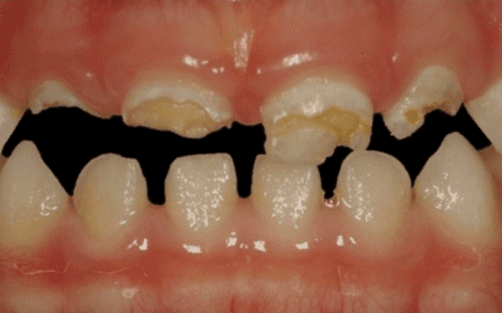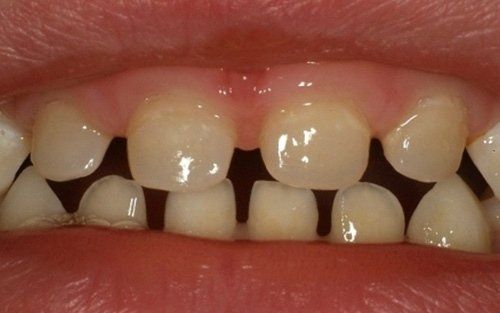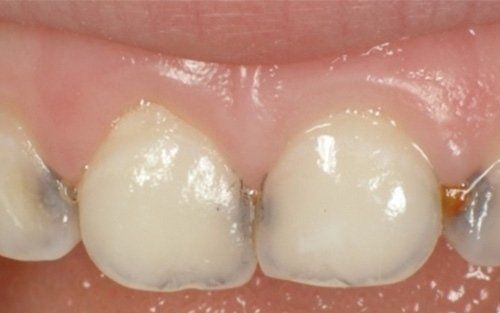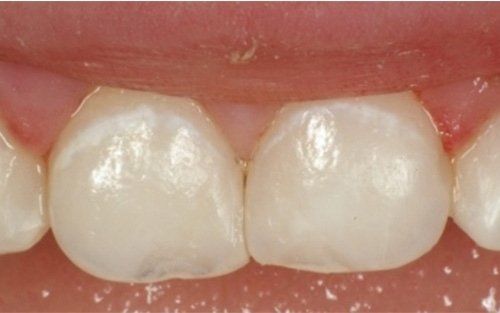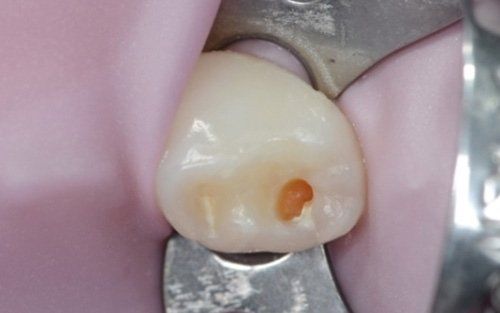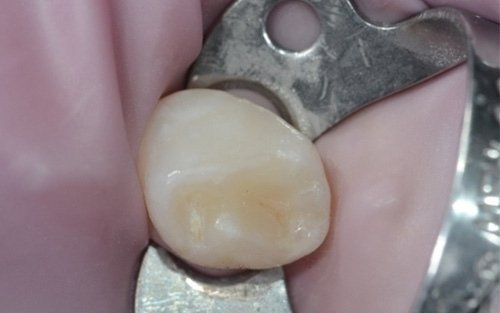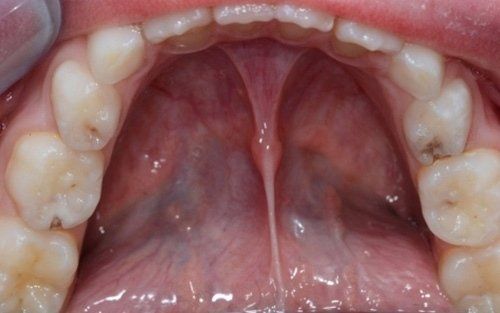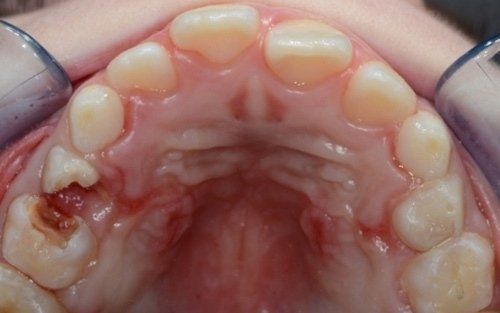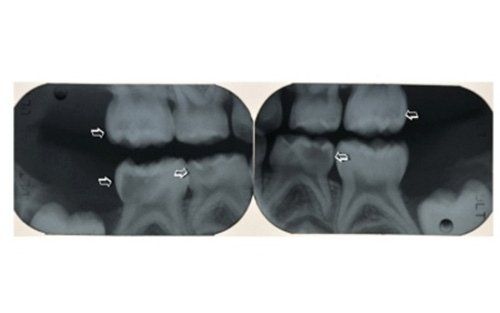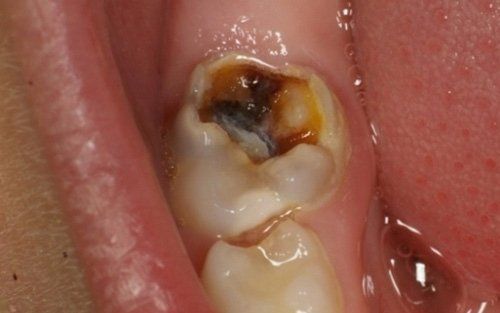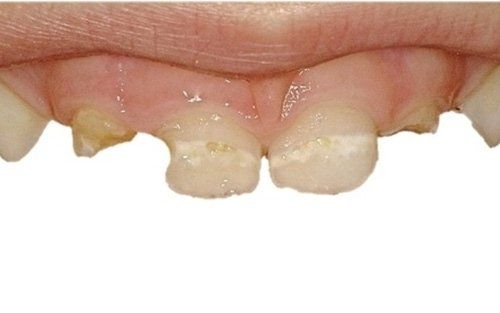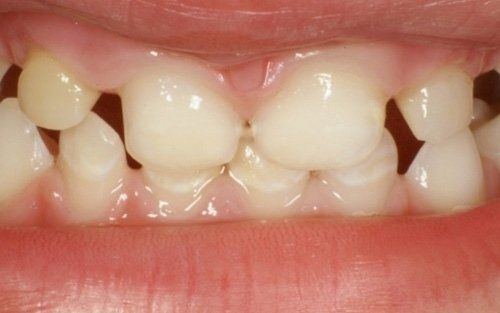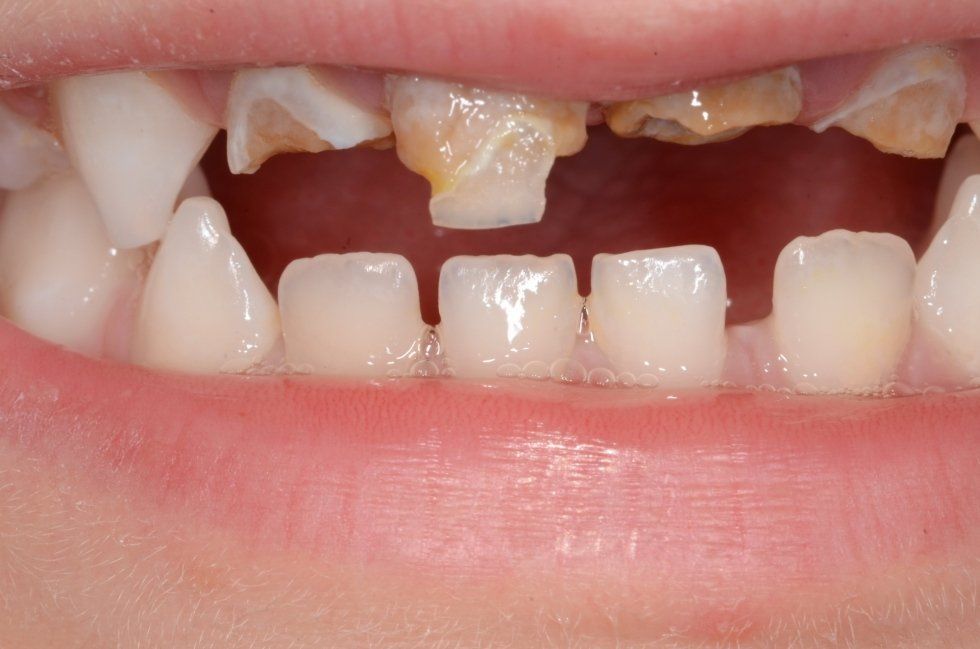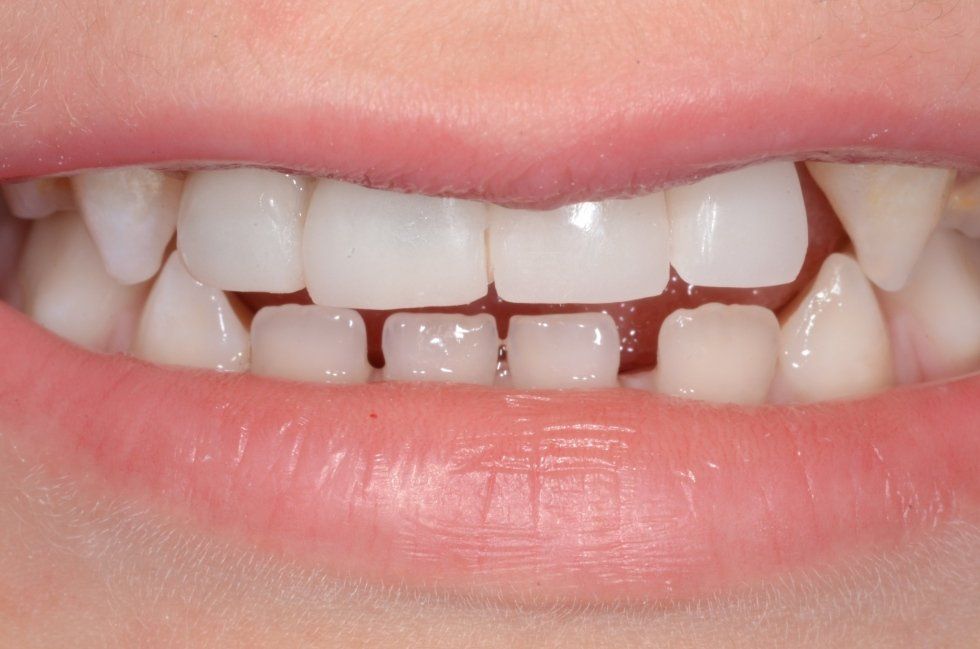TREATMENT OF DENTAL CARIES
Dental caries in children is one of the main reasons, along with orthodontics, for seeking dental intervention. The condition
progresses rapidly due to the limited enamel
protecting the primary teeth. This means that from the moment the tooth becomes diseased to when the pulp (nerve) is involved, the time is very short (see also paediatric endodontics).
Often, baby teeth begin to decay as soon as they erupt
in the oral cavity because they are frequently in contact with simple sugars, such as those found in baby bottles.
Particularly
aggressive for baby teeth are: all commercially available teas/infusions in pre-packaged and pre-sweetened sachets; milk sweetened with any type of sugar, including honey; milk and biscuits, especially when used at night; daily use, often instead of water, of fruit juices or acidic drinks, to name a few of the most common mistakes made in attempting to provide a complete diet to the child, which often results in the onset of a condition called "bottle syndrome".
Bottle syndrome is simply the presence of multiple cavities in baby teeth, which often, by the age of 3, are already extensively decayed both in the posterior and anterior sectors. It is always important to remember that
decayed baby teeth hurt, a lot, just like adult teeth, so this painful experience should be absolutely prevented for the child. Additionally,
maintaining the health of baby teeth is fundamental for the proper eruption of future permanent teeth. Sometimes, initial cavities appear with a lighter line near the tooth's collar (base): this is an early sign of demineralisation occurring on the tooth, so the
paediatric dentist should be involved as soon as possible. It is much simpler for those who care for children and their well-being to intervene when pain is not yet present because anyone would be more receptive when approached in a state of well-being rather than in pain.



